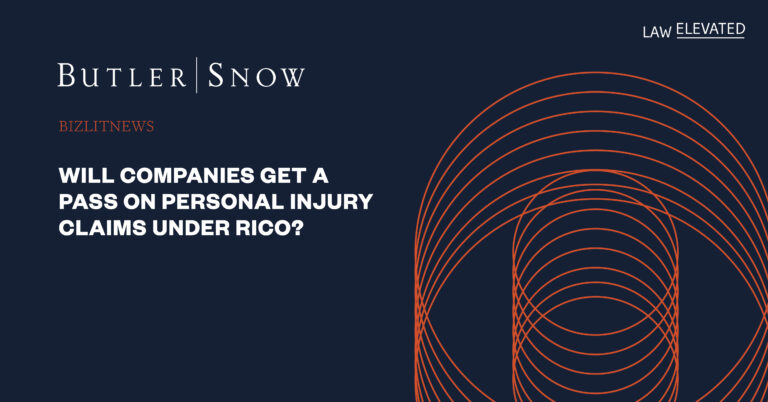The United Supreme Court will hear arguments this month in a case that will have widespread consequences for the business community, specifically the products industry. In Medical Marijuana v. Horn, the question presented to the Supreme Court is: Whether economic harms resulting from personal injuries are injuries to “business or property by reason of” the defendant’s acts for purposes of civil RICO.[1] The stakes are high as civil liability under the Racketeer Influenced and Corrupt Organizations (“RICO”) Act includes treble damages and attorney’s fees.[2] The ability to sue a company in a more favorable district is also easier under RICO as venue is proper in any district in which a defendant “resides, is found, has an agent, or transacts his affairs.” 18 U.S.C. § 1965(a). Additionally, civil RICO plaintiffs can join defendants with no connection to the forum if “the ends of justice” so require. 18 U.S.C. § 1965(b).
Horn was a commercial truck driver who lost his job after failing a drug test as a result of taking a product for chronic back pain that was advertised as not containing cannabinoid THC. Horn filed a lawsuit in federal court in New York against the makers of the product alleging claims of mail and wire fraud in furtherance of a conspiracy under RICO.[3] RICO permits civil suits if a person is “injured in business or property by reason of” a defendant’s racketeering activity. In this case, Horn alleged he was injured in business due to the loss of his job. The district court dismissed Horn’s civil RICO claim finding that because Horn’s lost earnings flow from a personal injury – ingestion of THC – he had not suffered an injury to his business or property.[4]
The Second Circuit Court of Appeals, however, overturned the district court and found that the term “business” in the RICO statute includes employment and that there is no bar even if a personal injury is a precursor to the necessary injury to business or property.[5] While this opinion is in line with the Ninth Circuit Court of Appeals[6], it is in contrast to several other circuit courts who have generally found that the “business or property” requirement in RICO excludes personal injuries.[7] The Supreme Court is now poised to weigh in. Not surprisingly, so is the business community.
In an amicus brief filed by business community advocates, they urged the Supreme Court to take up this case arguing that if the highest court did not weigh in, there would be forum shopping with “[a]n influx of filings in the Second and Ninth Circuits of routine product liability injury cases couched as civil RICO claims asking for trebling of wage losses”.[8] Litigants have been trying to push the boundaries of the RICO statute for years, and should the Supreme Court affirm the Second Circuit and not give businesses a pass, this would be a game changer for personal injury litigants.
[1] Brief for Petitioners, Medical Marijuana, Inc.; Dixie Holdings, LLC, AKA Dixie Elixirs; Red Dice Holdings, LLC, Petitioners, v. Douglas J. Horn, Respondent, In the Supreme Court of the United States, On Writ of Certiorari to the United States Court of Appeals for the Second Circuit. The case is scheduled for argument on October 15, 2024.
[2] 18 U.S.C. § 1964(c).
[3] Horn v. Medical Marijuana, Inc., Case No. 15-CV-701 (W.D.N.Y.).
[4] Horn v. Medical Marijuana, Inc., 2021 WL 4173195 (W.D.N.Y. Sept. 14, 2021).
[5] Horn v. Medical Marijuana, Inc., 80 F.4th 130 (2d Cir. 2023).
[6] Diaz v. Gates, 420 F.3d 897 (9th Cir. 2005) (en banc).
[7]See, e.g., Jackson v. Sedgwick Claims Mgmt. Servs., Inc., 731 F.3d 556, 565 (6th Cir. 2013); Evans v. City of Chicago, 434 F.3d 916, 925-27 (7th Cir. 2006); Magnum v. Archdiocese of Philadelphia, 253 F. App’x 224, 227 (ed Cir. 2007); Hughes v. Tobacco Inst., Inc., 278 F.3d 417,422 (5th Cir. 2001).
[8] Brief of Atlantic Legal Foundation & DRI Center for Law and Public Policy as Amici Curiae in Support of Petitioners, In the Supreme Court of the United States, On Petition for Writ of Certiorari to the United States Court of Appeals for the Second Circuit.
